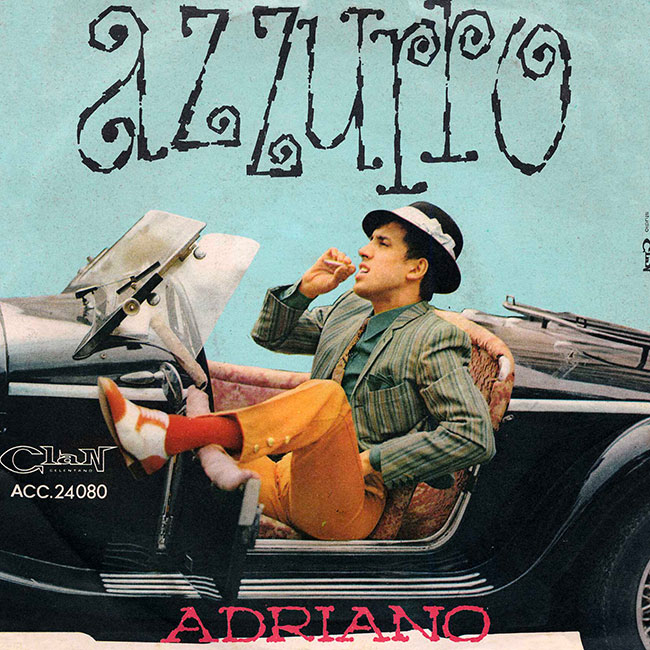Azzurro

I became a singer-songwriter by force of circumstances. O rather, by the force of … music. In fact, everything started with my passion for music. As I didn’t have a classical training, I couldn’t become a classical musician. In spite of my passion, I wasn’t able to cultivate it properly. And because I lived in Asti, given the conditions of the time I wasn’t able to easily go to the big cities to listen to jazz in order to develop as a musician. So I couldn’t ever become a jazzman. So neither classical nor jazz… To pursue my passion for music, only one route lay open to me: songs. The song might seem like a minor art, but it really isn’t. A song can be as beautiful as a piece of classical or jazz music. What matters is the quality of the song, that it be written and sung with love.
When I began writing songs, on the one hand I had to put my own musical tastes aside, while on the other I had to take them into account. I also had to step into a world that I didn’t really like. So my possibilities were limited: I didn’t want to write just anything, nor for just anyone. I was very partial to America; I didn’t like Italian singers, with their sickly sweet, artificial voices. (In general, I’m not fond of singers who don’t sing with their normal voices, the ones they use in life. Those who do are rare, but they’re the ones that interest me.) Back then there were Celentano, Patty Pravo, Caterina Caselli, Ornella Vanoni, Jannacci. Still today I find them interesting for their ability to sing like human beings, for their credible way of pronouncing Italian. This is one of Celentano’s strengths: he’s immediately able to make a song intelligible by singing it; he could even make the phone book interesting. It’s not a question of theatrical skill but a matter of singing in a way that’s human, even banal.
When I began to write songs, I intentionally took paths that went against the grain. ‘Azzurro’, for example, one of my first songs. Back then it was somewhat bizarre, almost like a march. No one wrote marches! But I did it for poetic reasons. For me marches are rooted deep in our hearts, beyond what’s fashionable.
When ‘Azzurro’ was released, many people were sceptical because it didn’t respect the rhythms of the times. Some sneered at it, but I couldn’t care less because I had put poetic qualities into that song which form part of our way of feeling. The general public understood me, and ‘Azzurro’ became a great success. All of my songs come into being in this spirit: I write music that’s out of fashion, a little mysterious, which probes the depths of the sounds of our identity.
[…] The day Celentano recorded ‘Azzurro’, I brought a copy of the demo home. It was late, and my mother was still up. The two of us went to the kitchen, and I turned on the reel recorder… My mother began to cry. Still today I wonder how much of the past and the future was in those tears.
From: De Angelis, Enrico (ed.), Tutto un complesso di cose. Il libro di Paolo Conte, Florence, Giunti, 2011, pp. 82-84.
